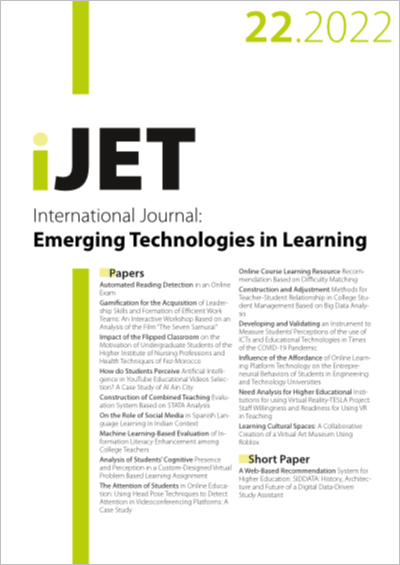Analysis of Students’ Cognitive Presence and Perception in a Custom-Designed Virtual Problem Based Learning Assignment
DOI:
https://doi.org/10.3991/ijet.v17i22.32777Keywords:
virtual, engagement, jigsaw, problem-based-learningAbstract
All the teaching and learning activities except laboratory-based practicals remained conducted virtually during the transition from the Covid-19 pandemic to the endemic phase. The problem-based assignment for Pharmaceutical Analysis was conducted virtually. This study aims to evaluate students’ level of engagement and perception of virtual engagement to complete an online problem-based assignment on real situations using the cooperative Jigsaw model. Jamboard was used as an online communication tool to connect the students and facilitators. The content of the written discussion posted on the Jamboard and the questionnaire survey were analysed to establish the level of engagement. The student’s perception of virtual engagement was based on a questionnaire survey using descriptive analysis. Analysis of the student’s opinion posted on the Jamboard showed the presence of cognitive, social, and teaching components in the level of engagement during the virtual discussion. The information from the internet is borderless and the facilitators need to be knowledgeable to explain, guide, and stimulate higher-order thinking among the students. With careful course design, the Jigsaw cooperative activity on real problem-based questions could use to facilitate collaborative problem-solving skills among the students.
Downloads
Published
How to Cite
Issue
Section
License
Copyright (c) 2022 Chee-Yan Choo, Mathumalar Loganathan Fahrni, Long Chiau Ming

This work is licensed under a Creative Commons Attribution 4.0 International License.


